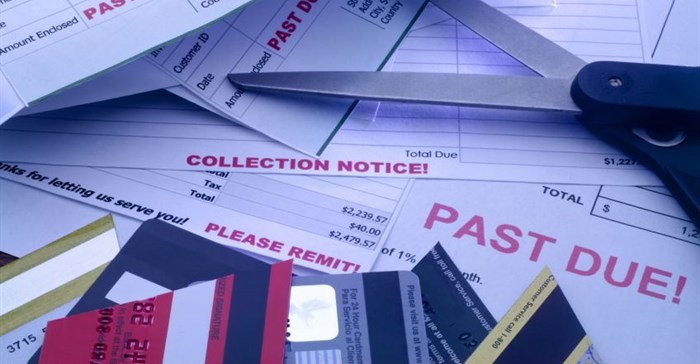New index offers a snapshot of SA's debt-stressed consumers

According to the index, which measures the rate of first-time consumer defaults across home, vehicle, personal and credit card product accounts in SA, the total consumer debt value in SA between May and July was R13.6bn.
The index reflecting a reading of 3.57%, an improvement 0.24 percentage points from 3.81% in July 2016. This means 3.57% of loans that had never before experienced defaults, were defaulted for the first time.
Experian attributed this to tighter lending practices, saying: "Affordability legislation, the introduction of pricing caps as well as reduced interest rates have resulted in lenders implementing stricter lending policies."
Experian MD Simon Russell said the index was the first in SA to provide insights into the debt pressures on the country's different consumer groups, and it would be released monthly.
He noted SA's twin challenges of low economic growth and high unemployment.
The goal in developing the consumer default index was to provide a definitive measurement of SA's consumer debt market, in order to improve lending, he said.
"We will make this data available for free to government and our clients to help them create the right interventions around lending, and how to help consumers from an education point of view."
The index showed that first-time credit default levels for personal loans, credit card and home loans improved while vehicle loans deteriorated against the July 2016 figures.
Personal loans, which represent the riskiest asset class, had the highest index at 8.54%, with R5.12bn new defaults between May and July 2017, while credit cards recorded an index of 6.91%.
Along socioeconomic lines, the index shows poorer people's debt burden is growing: the index for the "indigent township families" category deteriorated to 8.15% in July 2017 from 7.13% a year earlier.
Source: BDpro